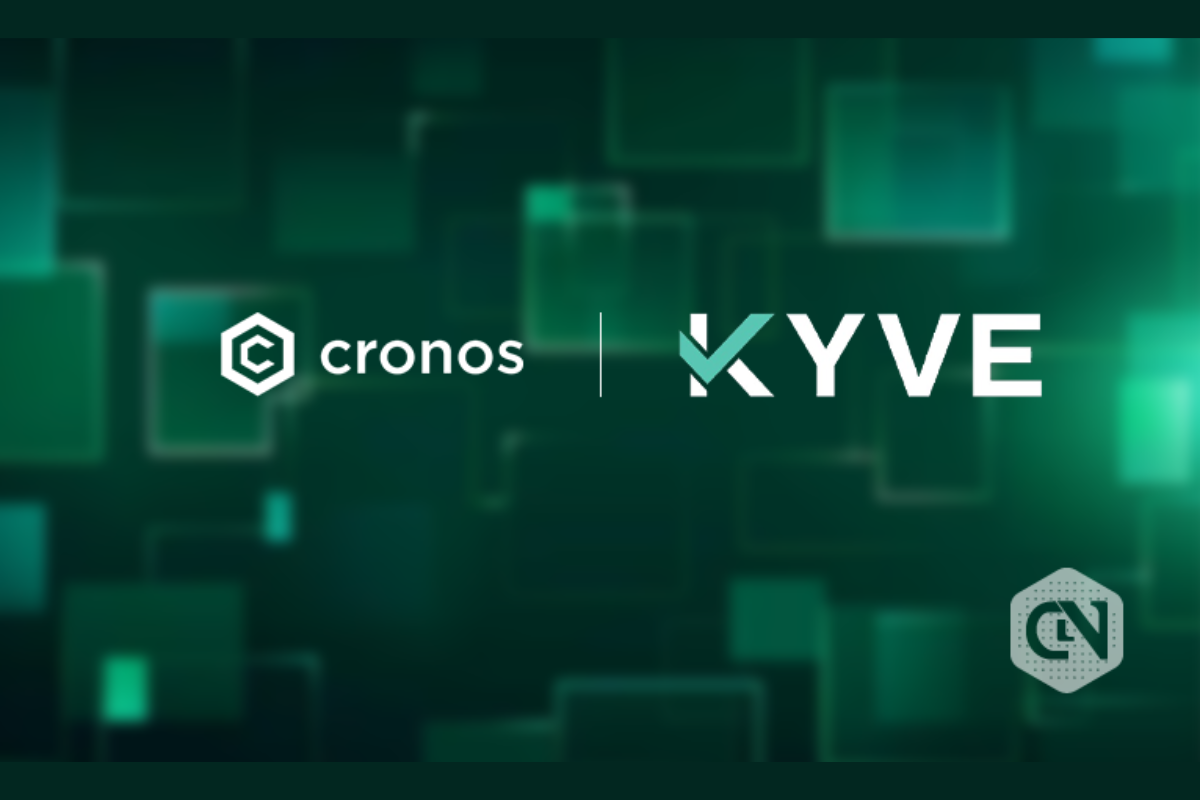Blockchain
New York Times Profiles Voatz

Voatz is honored to be featured in The New York Times this morning in a story written by Pulitzer Prize winning reporter, Matthew Rosenberg.
The story identifies Voatz as the first and only voting app available for consideration by election officials to explore additional technology for better voting access. This attention is especially significant for Voatz as a young company that has spent five years building and piloting a voting platform that first and foremost offers better accessibility, security and resilience when compared to any of the existing options available to those whose circumstances make it difficult to vote in person. This includes our overseas military servicemen and women and those with disabilities.
Background Context
After receiving and reviewing the full report, Voatz concluded that the report is fundamentally flawed, as detailed by our analysis below. Most telling, the foundation of the research is based on an Android version of the Voatz mobile voting app that was at least 27 versions old at the time of analysis. We highlight the flaws within the research and expose the agenda of the researchers below, which is aimed to thwart the process of innovation and progress for better voting access.
Voatz Analysis & Response to Researchers’ Flawed Report
Voatz wishes to acknowledge the enormous effort it must have taken for the team of researchers, two student researchers at MIT with Daniel Witzner, founder of MIT’s Internet Policy Research Initiative, to produce “The Ballot is Busted Before the Blockchain: A Security Analysis of Voatz, the First Internet Voting Application Used in U.S.”
Our review of their report found three fundamental flaws with their method of analysis, their untested claims, and their bad faith recommendations.
First, the researchers were analyzing an Android version of the Voatz mobile voting app that was at least 27 versions old at the time of their disclosure and never used in an election. Had the researchers taken the time, like nearly 100 other researchers, to test and verify their claims using the latest version of our platform via our public bug bounty program on HackerOne, they would not have ended up producing a report that asserts claims on the basis of an erroneous method.
Second, as the researchers admitted, the outdated app was never connected to the Voatz servers, which are hosted on Amazon AWS and Microsoft Azure. This means that they were unable to register, unable to pass the layers of identity checks to impersonate a legitimate voter, unable to receive a legitimate ballot and unable to submit any legitimate votes or change any voter data.
Third, in the absence of trying to access the Voatz servers, the researchers fabricated an imagined version of the Voatz servers, hypothesized how they worked, and then made assumptions about the interactions between the system components that are simply false. This flawed approach invalidates any claims about their ability to compromise the overall system. In short, to make claims about a backend server without any evidence or connection to the server negates any degree of credibility on behalf of the researchers.
The researchers have labeled Voatz as “not transparent”. With qualified, collaborative researchers we are very open; we disclose source code and hold lengthy interactive sessions with their architects and engineers. We educate them on the critical demands of election security; they give us feedback and educate us on new best practices based on their practical knowledge of security drawn from other industries.
Voatz has worked for nearly five years to develop a resilient ballot marking system, a system built to respond to unanticipated threats and to distribute updates worldwide with short notice. It incorporates solutions from other industries to address issues around security, identity, accessibility, and auditability.
We want to be clear that all nine of our governmental pilot elections conducted to date, involving less than 600 voters, have been conducted safely and securely with no reported issues. Pilot programs like ours are invaluable. They educate all election stakeholders and push innovation forward in a responsible, transparent way. For nearly two decades, the researchers and the community to which they belong have waged a systematic effort to dismantle any online voting pilots. These attempts effectively choke any meaningful conversation and learnings around the safe integration of technology to improve accessibility and security in our elections. The effect is to deny access to our overseas citizens, deployed military service men and women, their families, and citizens with disabilities.
It is clear that from the theoretical nature of the researchers’ approach, the lack of practical evidence backing their claims, their deliberate attempt to remain anonymous, and their priority being to find media attention, that the researchers’ true aim is to deliberately disrupt the election process, to sow doubt in the security of our election infrastructure, and to spread fear and confusion.
SOURCE Voatz
Blockchain
39% of Canada’s institutional investors have exposure to crypto: KPMG

According to a report from CoinTelegraph, nearly forty percent of institutional investors in Canada have exposure to cryptocurrency, as revealed by KPMG. This finding underscores the growing acceptance and adoption of digital assets among institutional investors in the country.
The report indicates that a significant portion of institutional investors in Canada are actively investing in or exploring opportunities in the cryptocurrency market. This trend reflects a shift in sentiment towards digital assets, with more investors recognizing the potential for long-term growth and diversification offered by cryptocurrencies.
KPMG’s findings highlight the increasing mainstream acceptance of cryptocurrencies among traditional investors, as well as the growing interest in blockchain technology and its potential applications across various industries. As institutional investors continue to enter the cryptocurrency market, they are expected to bring additional capital and liquidity, further fueling the growth and maturation of the digital asset ecosystem.
Overall, KPMG’s report signals a significant milestone in the adoption of cryptocurrencies in Canada, indicating that institutional investors are increasingly recognizing the value proposition of digital assets and integrating them into their investment portfolios. This trend is likely to accelerate the broader adoption and mainstream acceptance of cryptocurrencies in the country and beyond.
Source: cointelegraph.com
The post 39% of Canada’s institutional investors have exposure to crypto: KPMG appeared first on HIPTHER Alerts.
Blockchain
BounceBit (BB) Megadrop Now Open: Participate by Subscribing to BNB Locked Products or Completing Web3 Quests

The BounceBit (BB) Megadrop is now open for participation, as announced by Blockchain.News. This event presents an exciting opportunity for users to earn BB tokens by engaging in various activities, including subscribing to BNB locked products and completing Web3 quests.
Participants can join the BB Megadrop by subscribing to BNB locked products or completing Web3 quests, both of which offer different avenues for earning BB tokens. By participating in these activities, users have the chance to accumulate BB tokens and potentially benefit from the rewards associated with the Megadrop.
Subscribing to BNB locked products allows users to earn BB tokens by locking their BNB assets for a specified period. This not only provides users with an opportunity to earn rewards but also contributes to the liquidity and stability of the BounceBit ecosystem.
Additionally, completing Web3 quests offers users an alternative way to earn BB tokens by engaging in various tasks and challenges related to Web3 technology. These quests provide users with a fun and interactive way to learn about blockchain and cryptocurrency while earning rewards in the form of BB tokens.
Overall, the BB Megadrop presents an exciting opportunity for users to participate in the BounceBit ecosystem and earn rewards by engaging in activities that contribute to the growth and development of the platform. As the Megadrop progresses, participants can look forward to additional opportunities to earn BB tokens and potentially benefit from the rewards associated with this event.
Source: blockchain.news
The post BounceBit (BB) Megadrop Now Open: Participate by Subscribing to BNB Locked Products or Completing Web3 Quests appeared first on HIPTHER Alerts.
Blockchain
Cronos collaborates with KYVE to revolutionize Blockchain Data

Cronos, a prominent blockchain platform, has announced a collaboration with KYVE aimed at revolutionizing blockchain data, as reported by CryptoNewsZ. This partnership represents a significant step forward in enhancing the efficiency and scalability of blockchain data storage and retrieval.
The collaboration between Cronos and KYVE seeks to leverage KYVE’s decentralized data storage and retrieval solution to enhance the capabilities of the Cronos blockchain platform. By integrating KYVE’s technology, Cronos aims to address the challenges associated with storing and accessing large volumes of data on the blockchain, such as scalability and cost-effectiveness.
KYVE’s decentralized data storage solution utilizes a network of distributed nodes to store and retrieve data, ensuring high availability and reliability. This approach not only improves the efficiency of data storage and retrieval but also enhances the security and resilience of the blockchain network.
The partnership between Cronos and KYVE is expected to unlock new possibilities for decentralized applications (dApps) and smart contracts built on the Cronos platform. By providing a more efficient and scalable solution for blockchain data management, Cronos aims to attract developers and enterprises seeking to leverage blockchain technology for a wide range of applications.
Overall, the collaboration between Cronos and KYVE represents a significant development in the blockchain industry, highlighting the importance of innovation and collaboration in driving the evolution of decentralized technologies. As the partnership progresses, it is poised to deliver transformative benefits for blockchain data management and accelerate the adoption of decentralized applications and services.
Source: cryptonewsz.com
The post Cronos collaborates with KYVE to revolutionize Blockchain Data appeared first on HIPTHER Alerts.
-

 Blockchain Press Releases7 days ago
Blockchain Press Releases7 days agoDWF Labs joins the Klaytn Governance Council
-

 Blockchain7 days ago
Blockchain7 days agoPhoenix Group Engages BHM Capital as Liquidity Provider to Boost ADX Liquidity and Enhance Market Dynamics
-

 Blockchain Press Releases3 days ago
Blockchain Press Releases3 days agoDeFi Lens builds advanced Generative AI for Technical Analysis
-

 Blockchain7 days ago
Blockchain7 days agoCrypto fans count down to bitcoin’s ‘halving’
-

 Blockchain7 days ago
Blockchain7 days agoTether USDT stablecoin goes live on TON blockchain
-

 Blockchain3 days ago
Blockchain3 days agoVenezuela’s Oil Giant Turns to Crypto as US Sanctions Bite Again
-

 Blockchain3 days ago
Blockchain3 days agoHalving weakness sees $206 million exit crypto funds, Bitcoin miners pivot to AI
-

 Blockchain7 days ago
Blockchain7 days agoSupply Chain Finance Market Forecast to Reach $9.4 Billion by 2029: Increasing Emphasis on Sustainable Sourcing








































